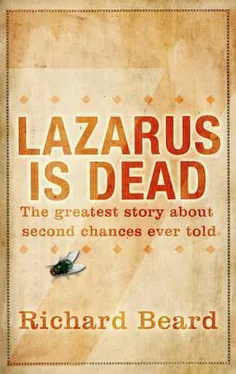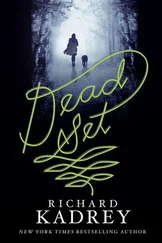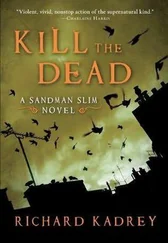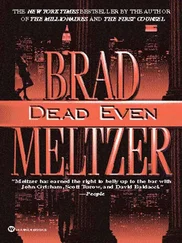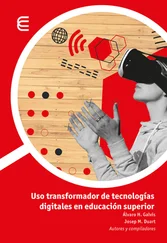Lazarus weeps.
Inside Isaiah’s house, the tables and chairs are so neatly arranged it is clear that visitors are barely welcome. There is a background hush of shuffling, of women taking up position to eavesdrop.
‘Lazarus would have liked to be here,’ Cassius says, ‘but he is temporarily indisposed. He wanted to apologise for his unseemly behaviour at the betrothal. I know it’s no excuse, but at the time he wasn’t feeling well.’
‘I’m honoured that a Roman official should take an interest.’
Isaiah has an urgent meeting with the Sanhedrin. He is in full priest’s regalia but he bows nevertheless. Not so deeply that his eyes leave Cassius. ‘If you’ve come about Jesus, we priests in Jerusalem know where he’s hiding. The situation is under control.’
Cassius nods. Religion doesn’t have to cause trouble, not when managed correctly.
‘We’ll take care of Jesus, I promise,’ Isaiah says. ‘We don’t approve of civic disturbances of any kind.’
‘That’s why I’m here. I want to persuade you to look ahead, take a broader view. Lazarus too has his followers. He doesn’t make promises he can’t keep — no pulling down the Temple and rebuilding it in three days. Give Lazarus a second chance.’
‘Too late. We already have plans for Lazarus.’
‘Let him marry Saloma, for the good of everyone involved.’
‘Lazarus died. That normally annuls any betrothal.’
‘Is that why you voted for the Sicarii to intervene? Or was it just to free Saloma from a marriage contract?’
‘That wasn’t my decision. Every member of the Sanhedrin was there.’
‘As well as some Roman spies. Call off the assassin. Let Lazarus live.’
‘I can’t do that.’
‘Then Lazarus can’t heal your daughter.’
Isaiah takes a step forward, eyes narrowed. ‘Of course he can’t. Nobody can. She’s beyond help.’
‘Lazarus came back from the dead,’ Cassius says, meeting Isaiah’s gaze. ‘What more does a messiah have to do?’
‘Heal the innocent. Yes. We all know that. Me, you, Jesus and every Judaean from here to kingdom come. Healing should be any messiah’s first and most important task ’
For twenty-five years Isaiah has accepted god’s gift of a daughter who can’t keep food in her mouth. She can be treated for months at a time with no visible improvement to her leg, and healers have proved worse than useless. Yanav gave her a drink of leaves and seawater while three miles away the dead came back to life. Why is his love and devotion unrewarded?
‘Agree to the marriage,’ Cassius says. ‘You’ll see what Lazarus can do.’
*
On Thursday morning, after four days and nights in a Roman cell, Lazarus wakes up with the hard weight of his head on one ear, and hears the march of approaching soldiers. He startles upright, and the footsteps go quiet. He lies down again and listens, crunch, crunch, but the sandals are not coming closer. It is the sound of the pulse in his neck, a stomping at the back of his jaw.
He decides to kill himself, as an act of revenge.
He sits upright, rubs his fingers over his cheeks and chin, but his deadly razor is back in the house in Bethany. He hasn’t shaved for eight days, including being dead, and he’ll soon look like a believer in god. The lie is too much to bear.
He stands on the end of the bed. His shoulders are level with the sill of the window. If he can get his head through, and then his shoulders, he knows the rest of him will follow. He has been ill. The muscles in his upper body are not what they were. Everything is ordained.
He pulls himself up, turns his head sideways and hauls his shoulders through. His body scrapes halfway out before his hands confirm no holds on either side of the outside wall. Directly below him a cart full of straw rolls by. It does not stop beneath the window.
He is stuck head-first out of a window on the third floor of the Antonia Fortress. His lower legs are braced against the ceiling to keep him in, and there is a fatal drop to the cobbles of the street below. He is not a fav-oured son of god. That would be a terrible misjudgement to make.
Now is the time. He angles his body downwards and straightens his legs. He slips through the window, turns in the air, his legs coming over behind him. The last thing he sees, looking above, is the empty sky over Israel.
It is cloudless, a clear blue eye.
The crucifixion of Jesus is designed to attract attention. It says Look at Me, in direct competition with the resurrection of Lazarus. Jesus needs to outshine the great and unprecedented miracle, the raising of Lazarus from the dead. If he fails to do so, there may be uncertainty about which is the main event.
Lazarus is the latest in a series of resurrections that viewed together look like experiments: Lazarus, the son of the widow of Nain, and before that the daughter of Jairus in Capernaum. All three are trial resurrections, prototypes. Jesus is testing the limits of the form.
Years earlier, on the shore of the lake in Galilee, Jesus had learned that siblings should be spared. No one should have to suffer, like Lazarus, the death of a brother or sister. The daughter of Jairus, who will die, is therefore an only child. Jesus then discovers, because she is a daughter, that grief is equally unbearable for a father.
For his next attempt, in the village of Nain, he picks an only child whose mother is a widow. No brothers, no fathers. The widow has experience of death, but her suffering too is astonishing. The outright grief of the parent confuses the value of the resurrection, because if Jesus can bring children back to life, it would be kinder to save them before they die.
Jesus lacks the human instinct. He tries again.
Lazarus is next, and as Jesus learns compassion he improves the basic set-up. Lazarus is not a child. His parents will not suffer. Resurrection is going to damage the fewest number of people if it involves an unmarried adult who has lost his parents and has no children.
Martha and Mary can’t be helped. No one is entirely alone, and like the widow of Nain the sisters have experience of death. They already know what it’s like to lose a brother. Also, they have each other. God can’t think of everything.
By this stage Jesus has understood that Lazarus needs to be buried. In the two previous resurrections, life had returned too soon, and witnesses will take every opportunity to disbelieve. If the bodies aren’t buried, a faked death or deep trance lingers as a possibility. Jesus corrects this flaw with Lazarus. His friend is dead four days, buried for two. Martha mentions the smell.
Lazarus is by far the best designed of the three trial resurrections, though room for improvement remains. He is called from the tomb in public, but the hardened cynics and Sadducees still insist doggedly that nobody saw him die.
Jesus registers this objection. He intends to stage an undeniably public death.
Lazarus lands on his back in a cart of straw.
Immediately he lands, the cart jolts and starts moving forward.
His body is unscathed. He wipes the straw out of his eyes and mouth. The cart, carrying feed for the sacrificial animals, will be heading for the Temple. Jesus spends his days at the Temple, and the two men are yet to sit and talk, but Lazarus refuses to be pushed around like this. If he can’t kill himself he’ll save himself, he alone, without the help of Jesus. He can be his own saviour, correct his own mistakes.
Saloma first. He’ll apologise for the charade of their betrothal, and set her free. Then Lydia.
He climbs out of the moving cart, and takes shelter in the shadow of a wall. No one has seen him. He walks, then runs, in the opposite direction to the Temple entrance and Jesus.
At Isaiah’s house, they are expecting him.
Читать дальше
